In this edition
About our College
A founding college of the University, we have a long tradition of excellence in teaching, research and engagement programs that benefit the health and economic vitality of Nevada. We offer programs in:
- agriculture, horticulture, rangeland & veterinary sciences
- biochemistry & molecular biology
- children, youth & families
- community & economic development
- health & nutrition
- natural resources & environmental science
Taking aim at wildfires in Nevada
University research looks at how climate change, drought and land management affect forests and rangelands
Mike Wolterbeek
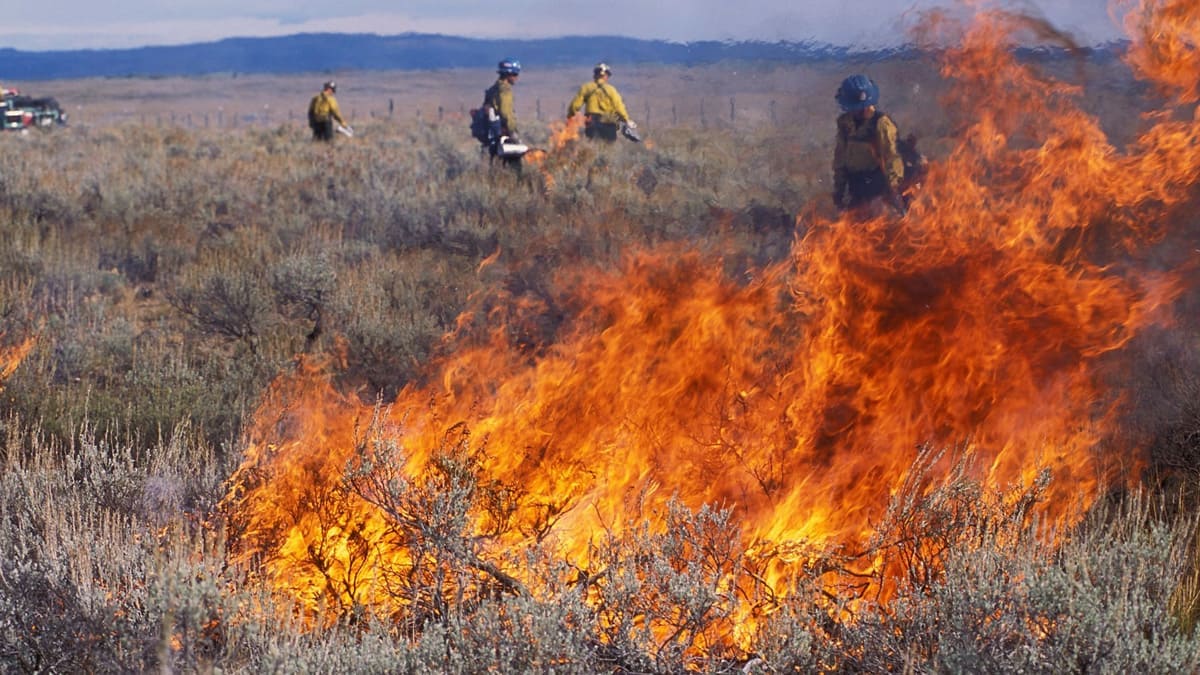 Bureau of Land Management, Nevada firefighters burn brush to reduce fuel loads.
Bureau of Land Management, Nevada firefighters burn brush to reduce fuel loads.
As part of national and statewide initiatives, University scientists are working to understand what drives increases in fire frequency, size and severity; how fires are changing ecosystem function in forests and rangelands; and what management actions can help reduce the negative ecological and economic impacts of fire.
“Our college faculty have for years been at the forefront of teaching, research and Extension regarding rangeland, woodland and forest fires,” said Bill Payne, dean of the College. “In recent years we have added numerous new faculty with expertise in different aspects of fire ecology, and we seek to integrate research, teaching, and Extension with a view towards greater knowledge, better policy prescriptions and improved, adaptive management practices.
“For example, the Experiment Station, led by Chris Pritsos, is funding at least five research projects on fire at the amount of $330,000, and our faculty have been very successful at attracting more than $1.25 million in extra-mural funding to fund research and Extension related to fire ecology and preparedness. We have a great many partners towards this end, including federal and state agencies, other colleges within the University; other universities; federal, state and local firefighters; and dozens of individual communities.”
One of the College’s longstanding outreach programs, Living With Fire, a collaborative effort among federal, state and local firefighting and resource management agencies, is managed by Extension.
“Our college faculty have for years been at the forefront of teaching, research, and Extension regarding rangeland, woodland and forest fires.”
- Bill Payne, dean of the College
Congratulations Class of 2020
College faculty, staff and students virtually come together to celebrate
Class of 2020
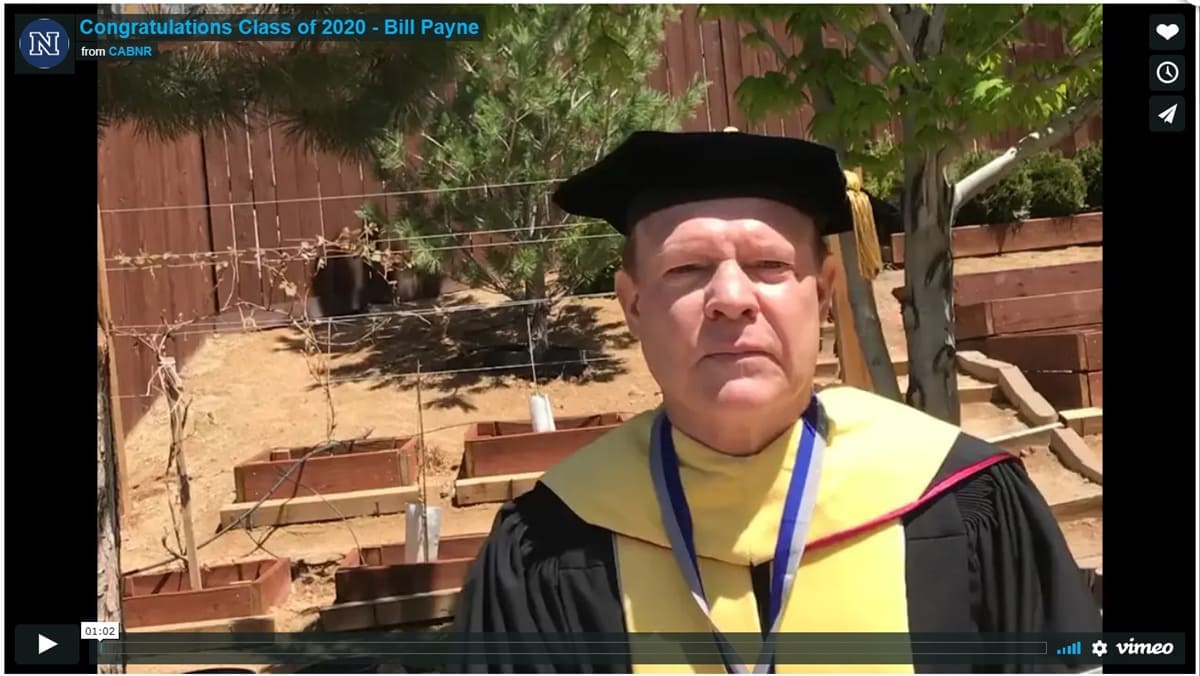 Dean Payne shares a message to College graduates.
Dean Payne shares a message to College graduates.
You've shown keen focus, curiosity and determination. You overcame every hurdle. You thrived in lectures, libraries and labs. You took classes that pushed you to develop the critical-thinking and problem-solving skills that are the hallmark of your profession. You earned your degree. Now you are ready to begin a rewarding career and make a world of difference.
162 B.S. degrees, 31 B.S. / M.S. degrees, 5 Ph.D. degrees
We can't wait to share your achievements with the world.
Extension presents ‘Living With Fire Conversations’ during Wildfire Awareness Month
Wildfire resources available through online speaker series and new website
Tiffany Kozsan
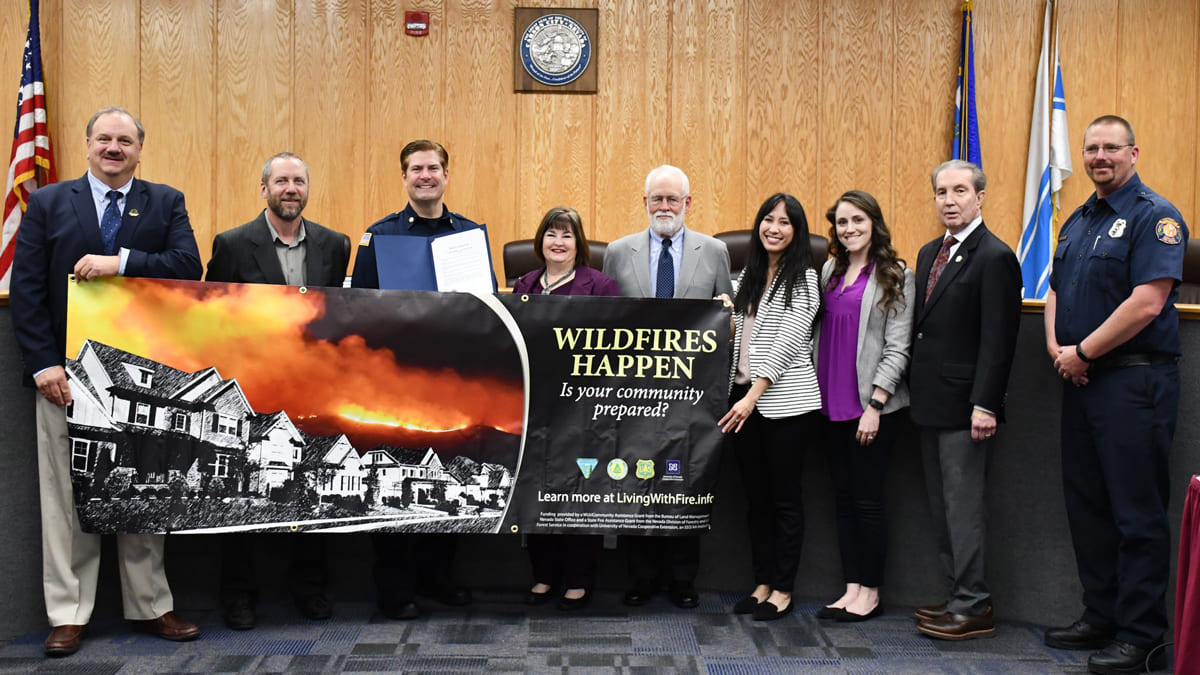 In May 2019, Carson City Mayor Bob Cromwell presented Living With Fire and the Carson City Fire Department with a proclamation declaring May as Nevada Wildfire Awareness Month.
In May 2019, Carson City Mayor Bob Cromwell presented Living With Fire and the Carson City Fire Department with a proclamation declaring May as Nevada Wildfire Awareness Month.
Wildfire knows no boundaries – make yours. This is the theme for Nevada Wildfire Awareness Month this May, occurring during a time when everyone is trying to set health boundaries through social distancing and staying at home.
“Wildfires can and will still happen this year, even though people are all locked down at home,” said Natural Resources Specialist Christina Restaino, director of Extension’s Living With Fire Program.
To help Nevadans reduce the wildfire risk, Living With Fire presents “Living With Fire Conversations,” an online speaker series that will be showing on the program’s Facebook page.
The Living With Fire Program also launched a brand new website, LivingWithFire.com, earlier this year to help homeowners, families and communities get prepared, informed and involved. The site has many different resources, including protection plans, a calendar of events, an interactive list of fire departments and districts, and steps homeowners can take during shelter-at-home restrictions.
“While you’re at home, now is a great time to prepare your home and property for wildfire and work on defensible space. Try to choose one or two small projects that you can tackle.”
- Restaino
Experiment Station offers food-safety information to farmers amid pandemic
Desert Farming Initiative is virtually connecting with producers across the state
Hannah Alfaro
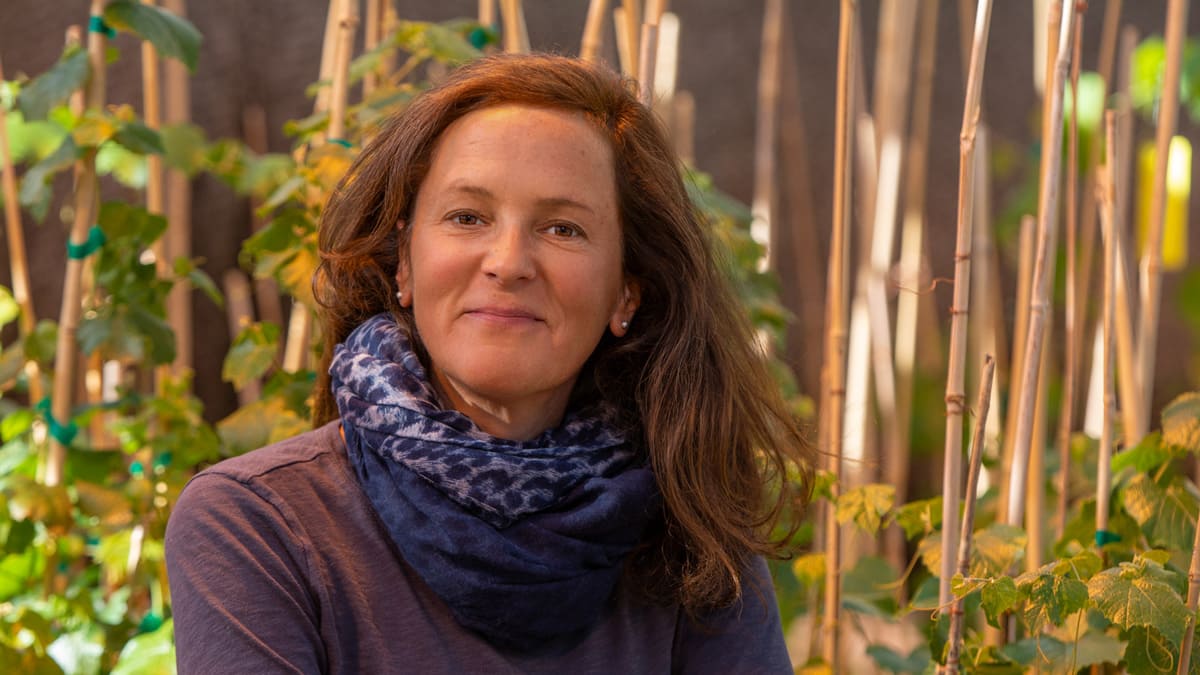 Jill Moe is working with the Desert Farming Initiative to connect local producers with food-safety information and education. Photo by John Schroeder.
Jill Moe is working with the Desert Farming Initiative to connect local producers with food-safety information and education. Photo by John Schroeder.
With the current COVID-19 crisis, food safety is more important than ever, and food safety begins with those growing our food. As part of its Desert Farming Initiative, the Experiment Station is working with local agriculture producers during the pandemic to deliver food-safety education and resources.
Jill Moe, education program coordinator with the Initiative, focuses on food safety, as well as the sustainability of local food systems. She explained these local food systems provide a safer resource for fresh produce for the community since local produce is typically handled less, reducing the potential for contamination and the spread of disease.
Although COVID-19 restrictions are currently preventing Moe from giving in-person workshops and trainings on food safety as she normally does, she’s been making sure that information is readily available to growers by answering questions through email and Facebook. In addition, as part of the Initiative’s Food Safety Program, she helped to create a short film about the steps being taken by Nevada farms to prevent food contamination and illness. These steps include identifying sources of pathogens, such as E. coli and salmonella; crop management; and worker health and hygiene. Moe is also creating a list of tips for producers to reinforce food-safety goals and reassure shoppers of current precautions in place.
“We are very pleased to have someone with Jill's background and expertise leading our food-safety program.”
- Chris Pritsos, associate dean of research for the College and director of the Experiment Station
4-H offers activities to keep youth members engaged during quarantine
Elko County 4-H hosts online scavenger hunt and photo contest for members
Hannah Alfaro
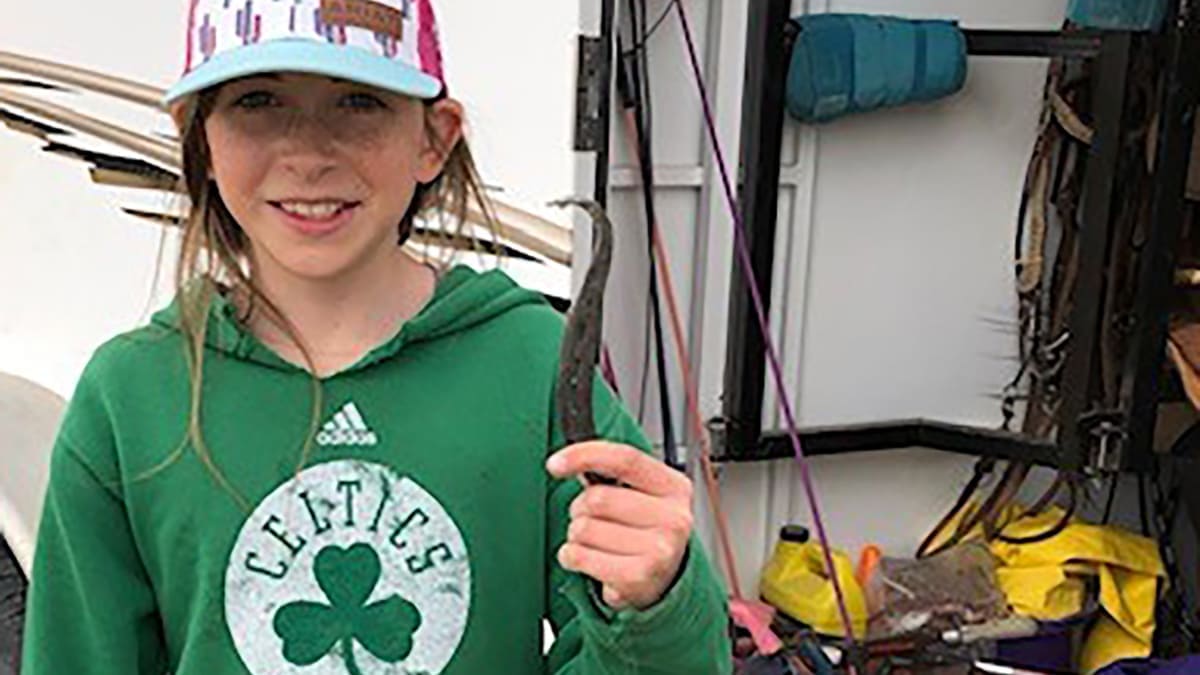 4-H youth Hannah shared a photo with a hoof pick, a grooming tool for removing mud and stones from a horse's hoof, as part of the Elko County 4-H Horse Program's virtual photo scavenger hunt. Photo by Laura Payne.
4-H youth Hannah shared a photo with a hoof pick, a grooming tool for removing mud and stones from a horse's hoof, as part of the Elko County 4-H Horse Program's virtual photo scavenger hunt. Photo by Laura Payne.
Extension’s Elko County 4-H Youth Development Program is adapting to the shelter-in-place order by offering online activities for their members to learn from home.
One activity was a virtual scavenger hunt for members of the Elko County 4-H Horse Program. The goal was for the students to continue learning and engaging with their horses as they would in a typical 4-H workshop. Members of the program took photos of subjects related to horses, including parts of a horse, such as the hock, and horse grooming tools, such as a body brush. Participants submitted the photos to a cloud storage service offered by the University and received gift certificates if they were able to take photos of all subjects on the list.
The Horse Committee is also holding an online workshop in which the members record videos of themselves safely catching, tying, grooming, saddling, bridling and mounting their horses. These clips will be used as a check-in so that the members can show they are still working on their horsemanship skills while at home.
4-H is a community of young people across America learning leadership, citizenship and life skills
Members learn life skills, make new friends, enhance self-esteem, achieve personal goals, develop positive relationships with peers and volunteers, and have fun learning and sharing as a family and a club
Growing a stronger Nevada
Our programs work together to make an impact
Our teaching, research and engagement programs are intertwined and complement one another. Faculty who teach on campus also conduct research as part of the Experiment Station, allowing students to learn about and participate in research. Extension faculty engaging with communities identify research needs, as well as join Experiment Station faculty to conduct research. Faculty on campus help to develop Extension programs in communities.
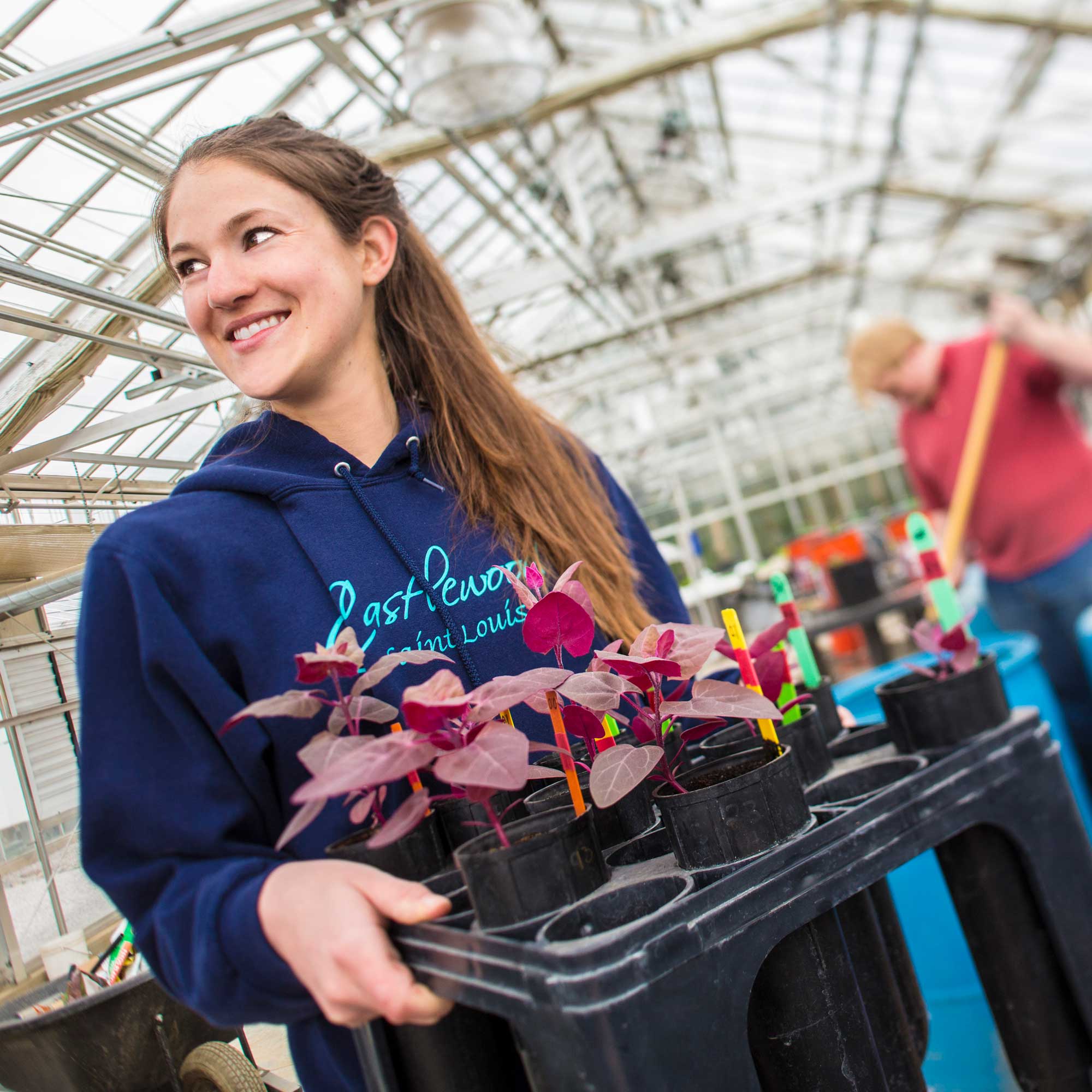
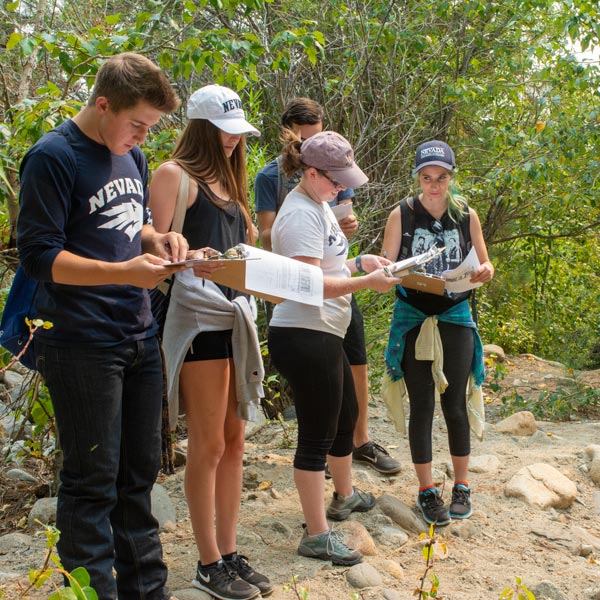
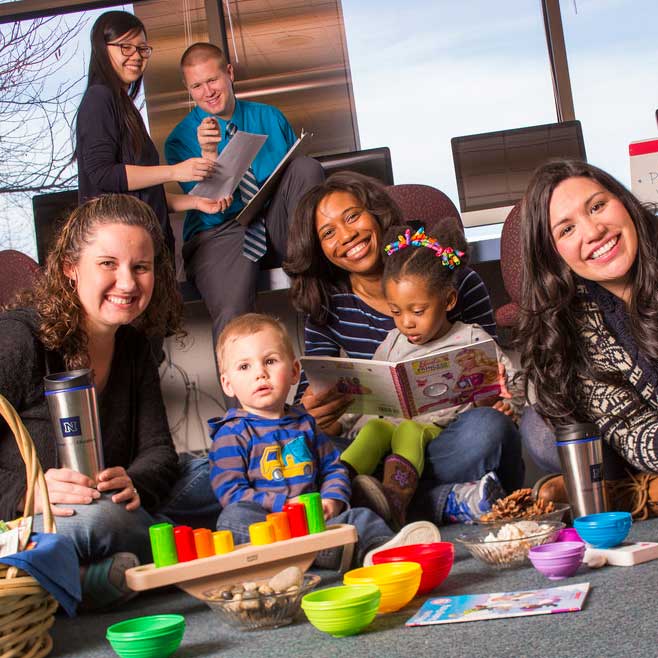
Want to help grow Nevada?
Consider making a contribution in support of classroom, lab or office space; graduate assistantships; student scholarships; or upgrades to the Nevada 4-H Camp. To learn more, please contact Mitch Klaich '02, director of development, at 775-682-6490.